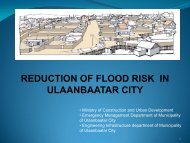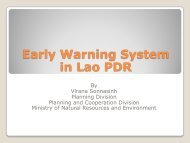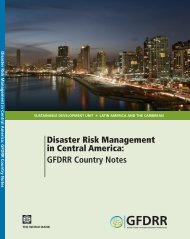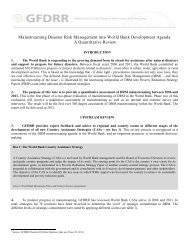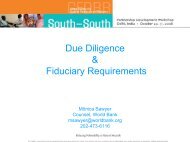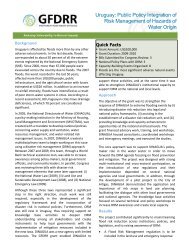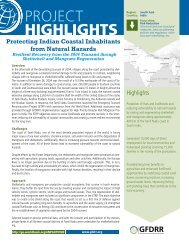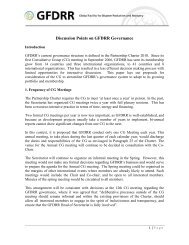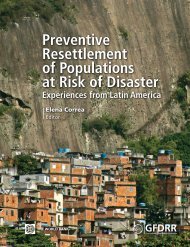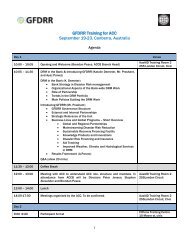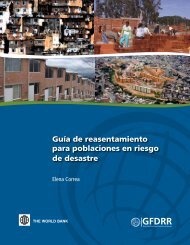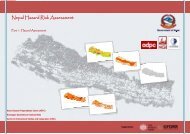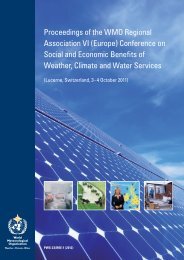El Salvador - GFDRR
El Salvador - GFDRR
El Salvador - GFDRR
You also want an ePaper? Increase the reach of your titles
YUMPU automatically turns print PDFs into web optimized ePapers that Google loves.
V. RISK MANAGEMENT | 123<br />
Pillar 4: Institutional Strengthening<br />
In the past 25 years, the number of disasters and their repercussions on human and economic development<br />
have increased worldwide. This same trend is observed in <strong>El</strong> <strong>Salvador</strong>. In a global context of climate change<br />
and in light of the possible increase in floods, landslides and droughts, it is important to include the<br />
territorial and environmental dimension in economic and social policies, and thus to reduce the increasingly<br />
more frequent risks of disasters.<br />
The complexity of disasters in <strong>El</strong> <strong>Salvador</strong> makes it necessary for risk management to be a State policy;<br />
this demands the incorporation of this issue in national policies and regulatory frameworks that have a<br />
direct effect on the use of land and its resources, such as those related to land use planning and urban<br />
development, housing and habitat, on the provision of public services and on sectors such as agriculture<br />
and livestock, the use of water resources, and environmental protection. A national risk management<br />
policy will give <strong>El</strong> <strong>Salvador</strong> the ability to better control risk levels and achieve the consensus of all sectors<br />
of society to participate in the implementation of risk reduction measures.<br />
Risk reduction must be an integral part of the five-year plan that the Government of <strong>El</strong> <strong>Salvador</strong> is<br />
formulating for 2009–2014 to address the underlying causes of natural threats and reduce the percentage<br />
of the population living in hazardous areas.<br />
The Legislative Assembly’s approval of the Land Use Planning Law (Ley de Ordenamiento Territorial)<br />
will signify substantive progress in the task of including the revision of risk conditions in land use planning.<br />
However, experience shows that the best results in the implementation of this type of provisions are<br />
achieved when the Law’s regulation is developed, technical assistance is offered for the formulation of and<br />
political consensus on land use planning, access to technical information is provided for the formulation<br />
of the plans, and efficient mechanisms are developed to control management and public investment for<br />
compliance with the plans.<br />
Integrated water resources management, associated with land use planning efforts and with the promotion<br />
of integrated watershed protection mechanisms, is essential for risk management.<br />
The Development Plan for the San <strong>Salvador</strong> Metropolitan Region must include risk reduction. This<br />
region contains nearly one-third of the population in 5% of the national territory, where access to decent,<br />
safe housing, land use, drinking water supply, sanitation, urban solid waste management, and transpiration<br />
are already serious problems.<br />
The Government of <strong>El</strong> <strong>Salvador</strong>’s risk management efforts require additional financial and technical<br />
support to improve the legal and institutional frameworks, including the strengthening of the National<br />
System for Civil Protection and Disaster Prevention and Mitigation, the General Bureau, and the consolidation<br />
and updating of the National Plan.<br />
In terms of regional cooperation, it is hoped that <strong>El</strong> <strong>Salvador</strong> will continue to increase its role within<br />
regional organizations dealing with risk management (e.g., CEPREDENAC, UNISDR) through the development<br />
of synergies that strengthen the country’s preparedness and resilience in the event of natural<br />
disasters.



